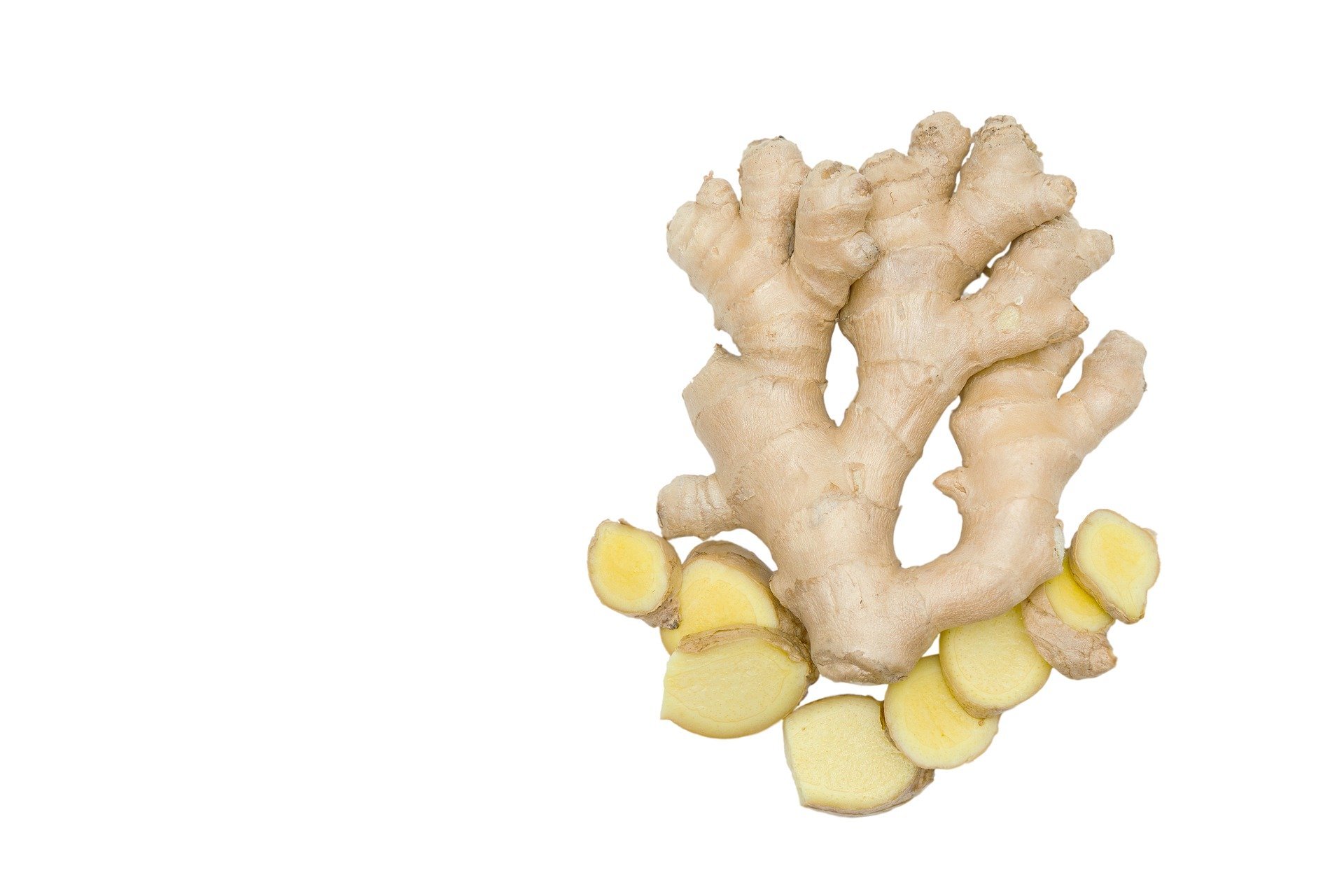Turkish love for fresh ginger
Fresh ginger has been a staple ingredient in Turkish cuisine for centuries, and it is not hard to see why. Its unique flavor and aroma add depth to savory and sweet dishes alike, while its myriad of health benefits have made it a popular choice in traditional medicine. But ginger is more than just an ingredient for Turkish cooks; it has also played a significant role in Turkish traditions and customs for generations. In this article, we will explore the Turkish love for fresh ginger, its cultural significance, health benefits, and innovative ways of using it in Turkish dishes.

Introduction to the Turkish love for fresh ginger
If there's one ingredient that's always present in Turkish households, it's fresh ginger. Turkish cuisine has a longstanding love affair with this pungent root, and its unique flavor can be found in many traditional dishes. More than just a flavor enhancer, ginger has an important place in Turkish culture, with its usage stretching back centuries. In this article, we'll explore the history of ginger in Turkey, its role in Turkish cuisine, its health benefits, and its cultural significance.
The history of ginger in Turkey
Ginger was not originally native to Turkey, but it has been a part of Turkish cuisine for centuries. It is believed that ginger was introduced to Turkey by the ancient Greek and Roman traders who travelled along the Silk Road. Over time, ginger was embraced by the indigenous Turkish population and incorporated into their cooking.
Why is fresh ginger so popular in Turkey?
Turkish cuisine is known for its bold and complex flavors, and ginger's unique taste adds depth to many dishes. In addition to its culinary uses, ginger has traditionally been used in Turkish folk medicine for its healing properties. It is also believed to aid digestion and boost immunity, making it a popular ingredient in traditional Turkish remedies.

The role of fresh ginger in Turkish cuisine
A versatile ingredient in Turkish cooking
Fresh ginger is an incredibly versatile ingredient in Turkish cuisine. It is used in savory and sweet dishes alike, and can be added to everything from soups and stews to cakes and cookies. Its flavor profile is complex, with a slightly spicy and sweet taste that enhances the flavors of other ingredients.
The most popular Turkish dishes that use fresh ginger
Some of the most popular Turkish dishes that use fresh ginger include şehriye çorbası (a traditional Turkish soup made with vermicelli noodles), tavuklu bamya (okra with chicken), zencefilli kurabiye (ginger cookies), and ayva tatlısı (quince dessert). Ginger is also commonly used in Turkish teas and other drinks.

The health benefits of consuming fresh ginger in Turkey
Ginger's healing properties in traditional medicine
For centuries, ginger has been used in Turkish folk medicine for its healing properties. It is believed to aid digestion, reduce inflammation, and relieve pain. Ginger has also been used to combat cold and flu symptoms, and is thought to help boost the immune system.
Scientific studies on ginger's health benefits
Modern scientific research has confirmed many of the health benefits associated with ginger. Studies have shown that ginger may help reduce inflammation in the body, lower blood sugar levels, and even help fight certain types of cancer. Ginger is also rich in antioxidants, which help protect the body against oxidative stress.

The cultural significance of ginger in Turkish traditions and customs
Ginger's role in Turkish weddings and other celebrations
Ginger has an important place in Turkish wedding customs. It is traditionally given to the groom by the bride's family as a symbol of good luck and fertility. Ginger is also a common ingredient in many Turkish desserts and sweets, which are often served at weddings and other celebrations.
Local superstitions and beliefs surrounding ginger
In addition to its use in traditional medicine and cuisine, ginger is also surrounded by superstitions and beliefs in Turkish culture. For example, it is believed that placing a piece of ginger under a baby's pillow will help protect them from evil spirits. Ginger is also thought to bring good luck and prosperity when eaten or carried in a small bag.

Growing and harvesting fresh ginger in Turkey
Ginger, a popular spice used in Turkish cuisine, thrives in warm, humid climates with rich soil. In Turkey, the ideal regions for growing ginger include the Black Sea coast and the Mediterranean region. Farmers typically plant ginger in the spring, and it takes about eight months for the ginger to mature. During the growing process, farmers must closely monitor the plants and ensure they receive adequate water, nutrients and sunlight.
The ideal climate and soil for ginger
Ginger grows best in a humid climate with warm temperatures, ranging from 20-35°C. The soil should be well-drained, loose, and rich in organic matter. Turkish farmers often plant ginger in fields that have already been used for another crop, as the soil is already nutrient-rich.
The harvest and curing process
The ginger harvest in Turkey typically takes place between September and October. Farmers carefully dig out the ginger roots, taking care not to damage them. Once harvested, the ginger is left to dry in the sun for several days, then cleaned and packaged for distribution.

Innovative ways to use fresh ginger in Turkish dishes
Turkish cuisine is known for its use of spices, and ginger is no exception. There are many traditional Turkish dishes that use ginger, such as Halep Kebap and Turkish-style chicken soup. However, there are also lesser-known recipes that put a unique twist on the classic spice.
Recipes that put a twist on traditional ginger dishes
One example is Ayva Tatlısı, a dessert made with quince and ginger syrup. Another is Güllaç, a traditional Turkish dessert that uses layers of thin pastry soaked in a mixture of milk, sugar, and ginger powder. Ginger can also be used to add a spicy kick to savory dishes, such as beef or chicken stir-fry.
Uncommon uses for fresh ginger in Turkey
In addition to its use in food, ginger is also a popular remedy for treating various ailments in Turkey. It is often consumed as a tea or mixed with honey to soothe sore throats and ease indigestion. Some also use ginger oil as a topical treatment for minor aches and pains.
Buying and storing fresh ginger in Turkey
If you're looking to buy fresh ginger in Turkey, your best bet is to head to a local market, known as a bazaar. These markets are typically open-air and offer a wide variety of fresh produce, including ginger. When purchasing ginger, look for roots that are firm, plump, and free of mold or soft spots.
The best places to buy fresh ginger in Turkey
Some of the best places to find fresh ginger in Turkey include the famous Grand Bazaar in Istanbul, the Bursa market, and the Kemeralti market in Izmir. These markets also offer a range of other spices and herbs that are commonly used in Turkish cuisine.
How to store fresh ginger for maximum freshness
To ensure maximum freshness, store fresh ginger in the refrigerator in a sealed container or plastic bag. You can also freeze ginger for longer-term storage. Simply peel and chop the ginger, then freeze in an airtight container.

Conclusion: Embracing the Turkish lifestyle with fresh ginger
Fresh ginger is a staple ingredient in Turkish cuisine and is used in a variety of dishes and remedies. From the mountains of the Black Sea to the beaches of the Mediterranean, Turkish farmers have perfected the art of growing and harvesting this versatile spice. Whether you're sipping ginger tea to ward off a cold or trying a new dish at a local bazaar, ginger is a symbol of the rich cultural and culinary traditions of Turkey. In Turkey, fresh ginger is cherished for its unique flavor, health benefits, and cultural significance. Whether used in traditional dishes or new creations, ginger holds a special place in Turkish cuisine and traditions. As we continue to discover the many ways this versatile ingredient can be used, it is clear that fresh ginger will remain a beloved staple of Turkish lifestyle for many years to come.

FAQ
Can I grow fresh ginger in my own garden in Turkey?
Yes, you can! Ginger thrives in warm, humid climates, making Turkey an excellent place for growing ginger. You can purchase ginger rhizomes from many local markets and plant them in warm, moist soil. With proper care, you can have a steady supply of fresh ginger in your own backyard.
What are some common recipes that use fresh ginger in Turkish cuisine?
There are many! Some of the most popular include Aşure (a sweet dessert), Şalgam Suyu (a savory drink made with turnips and ginger), Tavuklu Nohutlu Pilav (a rice and chickpea dish with chicken and ginger), and Kabak Tatlısı (a sweet pumpkin dessert with ginger and cinnamon).
What are some of the health benefits of consuming fresh ginger in Turkey?
Fresh ginger is packed with antioxidants and anti-inflammatory compounds that have been shown to improve digestion, reduce nausea, and help alleviate pain and inflammation. It is also rich in vitamins and minerals such as vitamin C, magnesium, and potassium, making it a great addition to a healthy diet.
Can I use dried ginger instead of fresh ginger in Turkish recipes?
While fresh ginger is preferred in Turkish cuisine, dried ginger can be used as a substitute in a pinch. However, keep in mind that dried ginger has a more concentrated flavor, so you will need to use less of it than you would fresh ginger to avoid overpowering the dish.